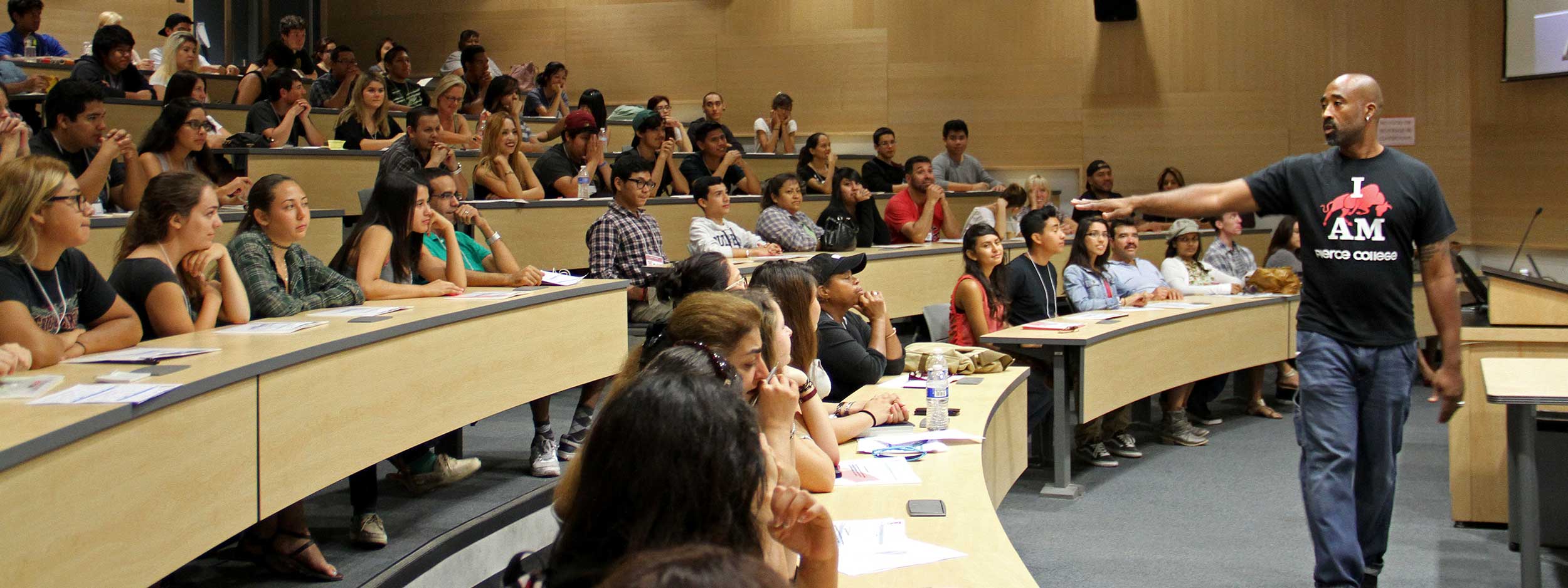Fall 2006
Committee:
SSCCC
Whereas, The costs of earning an education in the California community colleges are on the rise;
Whereas, The rising costs of textbooks and materials increase barriers to those students least able to afford and most in need of the benefits of a community college education;
Whereas, Faculty members who make textbook adoption decisions must consider, in addition to cost, a complex array of educational and ethical issues; and
Whereas, The Academic Senate for California Community College passed in 2005 the paper Textbook Issues: Economic Pressures and Academic Values, which made the following recommendations to faculty:
1) Faculty should promote student access and success by:
• Knowing the total cost of textbook packages they adopt; avoiding practices that add unnecessary costs;
• Considering all available options for textbooks and course materials, such as electronic resources, in their adoption decisions; and
2) Faculty should consider and encourage all means to control (reduce) the cost of textbooks
and materials that do not compromise academic freedom or educational quality, such as:
• Guaranteeing minimum length of time that a text (and edition) will be used;
• Discouraging automatic bundling of materials and determining if bundles provide added value for students;
• Monitoring (and adhering to) due dates to ensure best price and/or availability of used books;
• Minimizing use of expensive texts if other educationally equivalent alternatives are available;
• Encouraging library cooperation in obtaining and maintaining reserve and reference copies of textbooks;
• Indicating to bookstores and students that a text is required only if it will actually be used;
• Using, where possible, materials in public domain as well as free courseware;• Requiring net cost information from publishing representatives and maximizing faculty awareness of exact costs;
• Discouraging publishers from making unnecessary new editions and mid-year edition changes;
• Encouraging bookstores to provide copies to the campus library at reduced cost to the library (from their profit margin);
• Finding (or developing) book loan projects, forms of subsidy, and/or book scholarships;
• Making students aware of financial aid and other resources;
• Making students aware of alternative sources for textbooks and materials.
3) Faculty representatives should work proactively with campus bookstore staff to ensure best (or competitive) prices on textbooks and should actively participate on the campus committee charged with “oversight” of the campus bookstore;
Resolved, That the Student Senate for California Community Colleges encourage local associated student bodies to work with their local academic senate presidents to encourage faculty to heed the above advice of the Academic Senate for California Community Colleges; and
Resolved, That the Student Senate for California Community Colleges send this resolution to elected officials in both state and federal legislatures, making them aware of the cost issues affecting students and the barriers to success these issues represent.
Whereas, The rising costs of textbooks and materials increase barriers to those students least able to afford and most in need of the benefits of a community college education;
Whereas, Faculty members who make textbook adoption decisions must consider, in addition to cost, a complex array of educational and ethical issues; and
Whereas, The Academic Senate for California Community College passed in 2005 the paper Textbook Issues: Economic Pressures and Academic Values, which made the following recommendations to faculty:
1) Faculty should promote student access and success by:
• Knowing the total cost of textbook packages they adopt; avoiding practices that add unnecessary costs;
• Considering all available options for textbooks and course materials, such as electronic resources, in their adoption decisions; and
2) Faculty should consider and encourage all means to control (reduce) the cost of textbooks
and materials that do not compromise academic freedom or educational quality, such as:
• Guaranteeing minimum length of time that a text (and edition) will be used;
• Discouraging automatic bundling of materials and determining if bundles provide added value for students;
• Monitoring (and adhering to) due dates to ensure best price and/or availability of used books;
• Minimizing use of expensive texts if other educationally equivalent alternatives are available;
• Encouraging library cooperation in obtaining and maintaining reserve and reference copies of textbooks;
• Indicating to bookstores and students that a text is required only if it will actually be used;
• Using, where possible, materials in public domain as well as free courseware;• Requiring net cost information from publishing representatives and maximizing faculty awareness of exact costs;
• Discouraging publishers from making unnecessary new editions and mid-year edition changes;
• Encouraging bookstores to provide copies to the campus library at reduced cost to the library (from their profit margin);
• Finding (or developing) book loan projects, forms of subsidy, and/or book scholarships;
• Making students aware of financial aid and other resources;
• Making students aware of alternative sources for textbooks and materials.
3) Faculty representatives should work proactively with campus bookstore staff to ensure best (or competitive) prices on textbooks and should actively participate on the campus committee charged with “oversight” of the campus bookstore;
Resolved, That the Student Senate for California Community Colleges encourage local associated student bodies to work with their local academic senate presidents to encourage faculty to heed the above advice of the Academic Senate for California Community Colleges; and
Resolved, That the Student Senate for California Community Colleges send this resolution to elected officials in both state and federal legislatures, making them aware of the cost issues affecting students and the barriers to success these issues represent.

